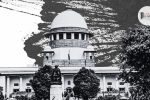No Prejudice Caused by Allowing Election Petitioner to Clarify Averments: Supreme Court Upholds High Court’s Leave to File Replication in Election Dispute

In a significant ruling on May 8, 2024, the Supreme Court of India dismissed an appeal challenging the High Court of Manipur’s decision which allowed an election petitioner to file a replication in response to new facts presented in the appellant’s written statement. The bench, comprising Justices Dr. D.Y. Chandrachud, J.B. Pardiwala, and Manoj Misra, held that such permission did not introduce any new cause of action or material facts beyond those originally pleaded.
Legal Framework and Judicial Discretion
The dispute revolved around the procedural propriety of allowing a replication in an election petition, under the framework of the Representation of the People Act, 1951, read with the applicable provisions of the Code of Civil Procedure, 1908 (CPC). The Supreme Court confirmed that Section 87 of the Representation of the People Act, alongside Order VIII Rule 9 CPC, grants the High Court the discretion to permit such filings to ensure a comprehensive and fair trial.
Factual Background and High Court Observations
The election petition was initiated by Nahakpam Indrajit Singh, alleging non-disclosure by Sheikh Noorul Hassan, the returned candidate, regarding certain bank accounts and liabilities in his nomination papers, which purportedly influenced the election outcome. The High Court had allowed Singh to file a replication to adequately address new defenses raised in Hassan’s written statement, emphasizing that the replication was purely explanatory and did not introduce new facts, thus aiming to avoid any prejudice against the appellant.
Supreme Court’s Analysis
The apex court meticulously analyzed whether subsequent pleadings could be entertained during the election petition proceedings and emphasized that the leave granted by the High Court was in line with ensuring procedural justice. The court noted that the replication sought to clarify the responses in the written statement, particularly concerning the non-disclosure allegations, and found that this did not amount to introducing a new cause of action or material facts.
Decision Upholding the High Court’s decision, the Supreme Court dismissed the appeal, stating, “If the replication is received, no prejudice would be caused to the other side, especially the first respondent. Moreover, it is the bounden duty of the election petitioner to clarify the averments made by the first respondent in his written statement.”
The ruling reinforces the judiciary’s role in maintaining the integrity of election processes and ensuring that election petitions are resolved with a complete understanding of all relevant facts, thereby supporting the principles of fairness and transparency in electoral disputes.
Date of Decision: May 8, 2024
Sheikh Noorul Hassan vs Nahakpam Indrajit Singh & Ors.






